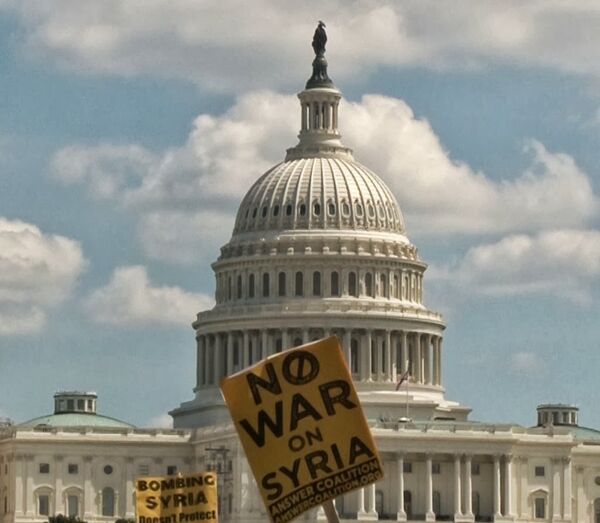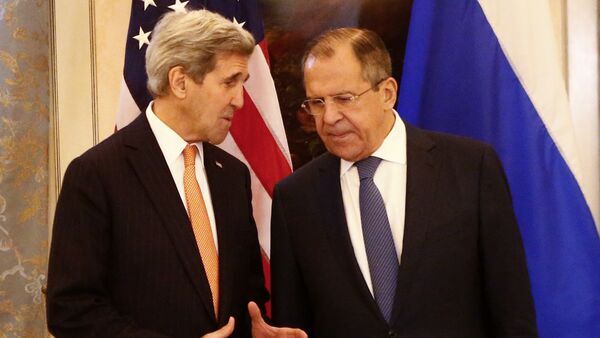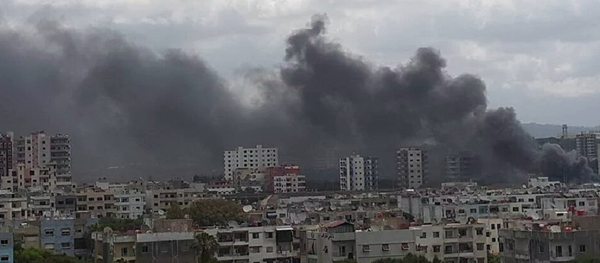Voices continue to emerge in the US calling for a bombing campaign against the Syrian government led by President Bashar al-Assad.
In mid-June, 51 US State Department diplomats singed an internal memo urging the Obama administration to carry out strikes against Assad in Syria.
A few days later Michele Flournoy, who is believed to be most likely Clinton's pick for Secretary of Defense, called for "limited military coercion" against Damascus as well as the creation of "no bombing zones" in Syria, Defense One reported.
In her response to the media outlet's publication Flournoy clarified that she argued that "the US should under some circumstances consider using limited military coercion — primarily strikes using standoff weapons — to retaliate against Syrian military targets in order to stop violations of the Cessation of Hostilities."
On July 20, speaking to CBS News' Margaret Brennan Leon Panetta, former Defense Secretary and CIA Director, remarked that he believes that "the next president" is likely to increase US airstrikes targeting both Daesh and Bashar al-Assad forces.
He also noted that following the November election Washington may also send additional special forces to assist "moderate rebels" on the ground in their fight against Daesh and most notably the Syrian government.

Most recently, US scholars Dennis Ross and Andrew Tabler argued about the need to kick off a bombing campaign against Assad's forces. They added that the counterterrorism part of US Syrian strategy should not be a priority.
"A recent example is an op-ed by Dennis Ross and Andrew Tabler of the Washington Institute for Near East Policy that argues for a bombing campaign against the Assad regime and expresses opposition to any cooperation with Russia in striking violent extremist groups such as ISIS [Daesh] and the Al-Qaeda-affiliated al-Nusra Front," Paul R. Pillar, a CIA veteran and nonresident Senior Fellow at the Brookings Institution, points out in his recent article for The National Interest.
Pillar warns that increasing airstrikes against the Assad government in Syria could add to the existing anti-Western sentiment and further inflame radicalism.
As for refugees, the US military operation wouldn't tackle the problem: "as far as refugees are concerned, people can become refugees just as easily as a result of fighting against the Assad regime as they can from fighting against ISIS [Daesh] or Nusra [Front]."
"The op-ed makes the erroneous assumption that creating the conditions for a political settlement is all a matter of imposing sufficient costs on the Syrian regime and getting its Russian and Iranian backers to shed their presumed belief (another erroneous assumption by Ross and Tabler, for which they provide no evidence) that a purely military outcome of the conflict is possible," Pillar underscores.
He calls attention to the fact that so-called "Syrian rebels" are not seemingly willing to compromise and by throwing its weight behind the Islamist fighters Washington is likely to increase this unwillingness and "obduracy."
"Civil wars can get settled only when all sides, not just one side, see a continued war as a hurting stalemate," Pillar stresses.
There is yet another flaw in Ross and Tabler's logic, according to the CIA veteran: they fail to clarify America's interests do and don't lie in Syria.
The proponents of a more muscular policy in Syria should realize that even a "shaky compromise" will require all parties to cooperate in the region, including Russia and Iran, Pillar emphasizes.




